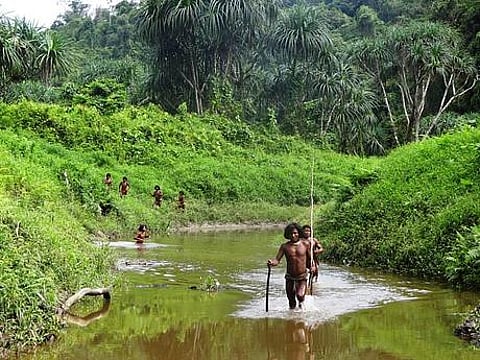

NEW DELHI: An international Indigenous tribal rights organization has reported that India's ambitious 'New Hong Kong project', valued at Rs 75000 crore, on Great Nicobar Island could potentially threaten the existence of one of the oldest and most isolated tribes.
The report, titled "Crushed: How India Plans to Sacrifice One of the World’s Most Isolated Tribes to Create 'the New Hong Kong'," by Survival International, indicates that this mega-development project may lead to the destruction of the uncontacted Shompens.
Survival International (SI) is a London-based charity that advocates for the collective rights of Indigenous, tribal, and uncontacted peoples.
The Great Nicobar project, often referred to as 'the new Hong Kong', includes plans to construct a mega-port, a defence base, a power station, and a new city to accommodate 650,000 residents. This project is expected to attract around one million tourists and other visitors to the small island each year.
The report warns that uncontacted Shompen people, who live only on Great Nicobar Island in the Indian Ocean, will not survive if the Great Nicobar Development Project goes ahead.
The SI said that it sent the report to the UN Committee on the Elimination of Racial Discrimination, UN Special Rapporteurs, and other UN officials, urging them to call for the project to be scrapped.
Thirty-nine leading genocide scholars wrote to the Indian government in February 2024, warning that the project would wipe out the Shompen if it went ahead.
Around 300 Shompen people, the majority of whom are uncontacted, live in the lush rainforests of the Island’s interior. Great Nicobar is part of the same island chain that is home to the uncontacted Sentinelese people, where an American influencer was arrested this month for trying to contact the tribe.
“It’s appalling that the authorities in India are pressing ahead with this project that will wipe out the Shompen, one of the world’s most isolated tribes,” said Caroline Pearce, Director of Survival International.
Accusing the Indian government for violating basic human rights by persecuting people who visit the Island.
“While they’re prosecuting someone for going to the island of the Sentinelese, they cannot justify building a city of 650,000 people on the island of their uncontacted neighbors the Shompen,” said Caroline.